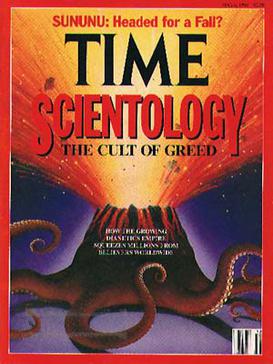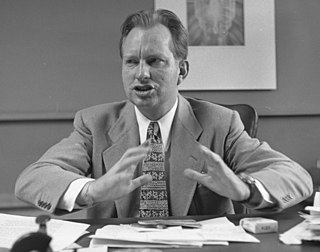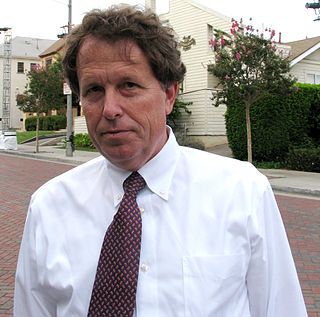
Xenu, also called Xemu, is a figure in the Church of Scientology's secret "Advanced Technology", a sacred and esoteric teaching. According to the "Technology", Xenu was the extraterrestrial ruler of a "Galactic Confederacy" who brought billions of his people to Earth in DC-8-like spacecraft 75 million years ago, stacked them around volcanoes, and killed them with hydrogen bombs. Official Scientology scriptures hold that the thetans of these aliens adhere to humans, causing spiritual harm.

There are a number of disputes concerning the Church of Scientology's attempts to suppress material critical of Scientology and the organization on the Internet, utilizing various methods – primarily lawsuits and legal threats, as well as front organizations. In late 1994, the organization began using various legal tactics to stop distribution of unpublished documents written by L. Ron Hubbard. The organization has often been accused of barratry through the filing of SLAPP suits. The organization's response is that its litigious nature is solely to protect its copyrighted works and the unpublished status of certain documents.

The Church of Scientology has been involved in numerous court disputes across the world. In some cases, when the Church has initiated the dispute, questions have been raised as to its motives. The Church of Scientology says that its use of the legal system is necessary to protect its intellectual property and its right to freedom of religion. Critics say that most of the organization's legal claims are designed to harass those who criticize it and its manipulative business practices.

Followers of the Scientology movement maintain a wide variety of beliefs and practices. The core belief holds that a human is an immortal, spiritual being (thetan) that is resident in a physical body. The thetan has had innumerable past lives, some of which, preceding the thetan's arrival on Earth, were lived in extraterrestrial cultures. Based on case studies at advanced levels, it is predicted that any Scientologist undergoing auditing will eventually come across and recount a common series of past-life events.

Since its inception in 1954, the Church of Scientology has been involved in a number of controversies, including its stance on psychiatry, Scientology's legitimacy as a religion, the Church's aggressive attitude in dealing with its perceived enemies and critics, allegations of mistreatment of members, and predatory financial practices; for example, the high cost of religious training:191 and perceived exploitative practices. When mainstream media outlets have reported alleged abuses, representatives of the church have tended to deny such allegations.

The Fishman Affidavit is a set of court documents submitted by self-professed ex-Scientologist Steven Fishman in 1993 in the federal case, Church of Scientology International v. Fishman and Geertz (Case No. CV 91-6426.

A body thetan or BT is a concept in Scientology of a disembodied thetan (being) that is stuck in, on, or near a human body. All human bodies are said to be infested by these disembodied thetans, or clusters of them.

Lawrence Dominick Wollersheim is an American former Scientologist.

In Scientology, Operating Thetan (OT) is a state of complete spiritual freedom in which one is a "willing and knowing cause over life, thought, matter, energy, space and time". The Church of Scientology offers eight "levels" of OT, each level costing thousands of US dollars. Each OT level is confidential and is not revealed to anyone beforehand. In summary, the objective of these levels is to remove "body thetans" which are "confused, disembodied souls from other planets who have attached themselves to us".

The term fair game is used to describe policies and practices carried out by the Church of Scientology towards people and groups it perceives as its enemies. Founder of Scientology L. Ron Hubbard established the policy in the 1950s in response to criticism both from within and outside his organization. Individuals or groups who are "fair game" are judged to be a threat to the Church and, according to the policy, can be punished and harassed using any and all means possible. In 1968, Hubbard officially canceled use of the term "fair game" because of negative public relations it caused, although the Church's aggressive response to criticism continued.

"The Thriving Cult of Greed and Power" is an article, written in 1991 by U.S. investigative journalist Richard Behar, which is highly critical of Scientology. It was first published by Time magazine on May 6, 1991, as an eight-page cover story, and was later published in Reader's Digest in October 1991. Behar had previously published an article on Scientology in Forbes magazine. He stated that he was investigated by attorneys and private investigators affiliated with the Church of Scientology while researching the Time article, and that investigators contacted his friends and family as well. Behar's article covers topics including L. Ron Hubbard and the development of Scientology, its controversies over the years and history of litigation, conflict with psychiatry and the U.S. Internal Revenue Service, the suicide of Noah Lottick, its status as a religion, and its business dealings.

Scientology founder L. Ron Hubbard routinely referred to "space opera" in his teachings, drawing from science-fiction and weaving it into his origins of human history. In his writings, wherein thetans were reincarnated periodically over quadrillions of years, retaining memories of prior lives, to which Hubbard attributed complex narratives about life throughout the universe. The most controversial of these myths is the story of Xenu, to whom Hubbard attributed responsibility for many of the world's problems.

Arnaldo Pagliarini Lerma was an American writer and activist, a former Scientologist, and a critic of the Church of Scientology who appeared in television, media and radio interviews. Lerma was the first person to post the court document known as the Fishman Affidavit, including the Xenu story, to the Internet via the Usenet newsgroup alt.religion.scientology.

OT VIII or OT 8 is the highest current auditing level in Scientology. OT VIII is known as "Truth Revealed" and was first released to select high-ranking public Scientologists in 1988, two years after the death of Scientology's founder, L. Ron Hubbard. OT VIII is only delivered to members of the Church of Scientology in one place—aboard the organization's private cruise ship, the Freewinds. There are a few advanced auditors that are able to deliver the level to those who meet the prerequisites.
According to the beliefs of the Church of Scientology, the Marcab Confederacy is said to be one of the most powerful galactic civilizations still active. Church founder L. Ron Hubbard describes it as:
Various planets united into a very vast civilization which has come forward up through the last 200,000 years, formed out of the fragments of earlier civilizations. In the last 10,000 years they have gone on with a sort of decadent kicked-in-the-head civilization that contains automobiles, business suits, fedora hats, telephones, spaceships — a civilization which looks almost an exact duplicate but is worse off than the current US civilization.

Thomas William Davis is an American financial executive. From 2005 to 2011, Davis was the head of external affairs and chief spokesperson of the Church of Scientology International and Senior Vice President at the Church of Scientology Celebrity Centre International from the early 1990s. Between 2011 and 2013, Davis did not make any media public appearances. In June 2013, it was revealed Davis and his wife had relocated from Gold Base in Riverside County, California, to Austin, Texas. He currently resides in Los Angeles.

The relationship between Scientology and religious groups is very complex. There are significant contradictions between Scientology and most religions, especially the major monotheistic religions. Scientology texts written by its inventor, L. Ron Hubbard, claim that it is fully compatible with all existing major world religions, and that it does not conflict with them or their religious practices. Members are not allowed to engage in other similar mental therapies or procedures, religious or otherwise.

Scientology is a set of beliefs and practices invented by the American author L. Ron Hubbard, and an associated movement. It is variously defined as a cult, a business, a religion, or a scam. Hubbard initially developed a set of ideas that he called Dianetics, which he represented as a form of therapy. An organization that he established in 1950 to promote it went bankrupt, and Hubbard lost the rights to his book Dianetics in 1952. He then recharacterized his ideas as a religion, likely for tax purposes, and renamed them Scientology. By 1954, he had regained the rights to Dianetics and founded the Church of Scientology, which remains the largest organization promoting Scientology. There are practitioners independent of the Church, in what is referred to as the Free Zone. Estimates put the number of Scientologists at under 40,000 worldwide.

Kendrick Lichty Moxon is an American Scientology official and an attorney with the law firm Moxon & Kobrin. He practices in Los Angeles, California, and is a lead counsel for the Church of Scientology. Moxon received a B.A. from American University in 1972, and a J.D. degree from George Mason University in 1981. He was admitted to the Washington, D.C., bar association in 1984, and the State Bar of California in 1987. Moxon's early work for the Church of Scientology involved legal affairs, and he also held the title of "reverend". He worked out of the Scientology intelligence agency known as the Guardian's Office (GO), and was named as an unindicted co-conspirator after the Federal Bureau of Investigation's investigation into criminal activities by Scientology operatives called "Operation Snow White". An evidence stipulation in the case signed by both parties stated he had provided false handwriting samples to the FBI; Moxon has since said that he did not "knowingly supply" false handwriting samples.

The Church of Scientology network operates as a multinational conglomerate of companies with personnel, executives, organizational charts, chains of command, policies and orders.
Religious Technology Center is the most powerful executive organization within the Scientology empire, and its current chairman, David Miscavige, is widely recognized as the effective head of the church.









